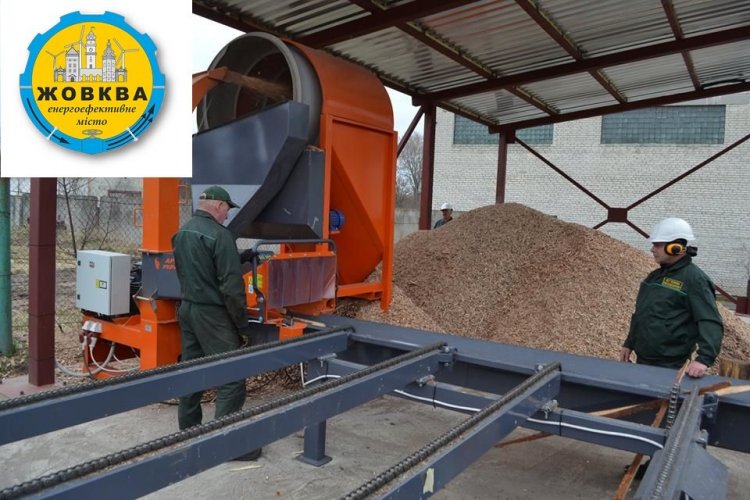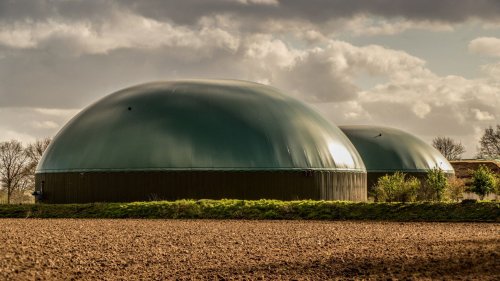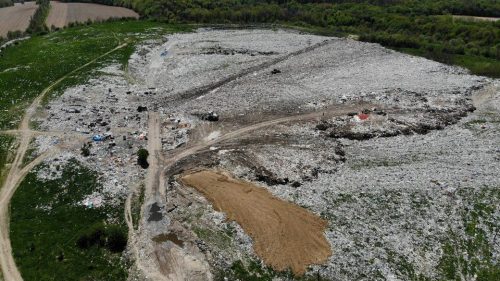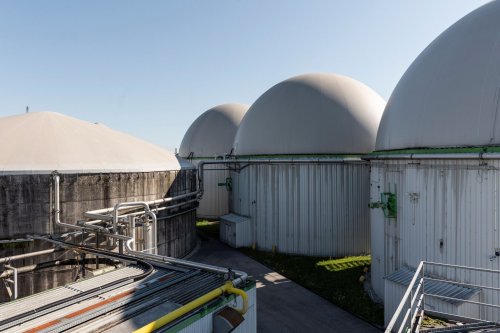About half of the city of Zhovkva in the Lviv region uses biomass for district heating. In total, more than 40% of heat in the city is produced from renewable energy sources: sawdust, wood chips, wood pellets, etc.
This is stated on the website of the Bioenergy Association of Ukraine (UABIO).
According to UABIO, the implementation of a number of projects in Zhovkva made it possible to reduce the tariff for the population by 10%, for organizations - by 30%.
At the same time, Zhovkivshchyna reduced gas consumption for the population by 30%. It is noted that more than 13 thousand people live in the city.
About 30% of heat in Zhovkva is produced by burning wood waste and biomass processing.
It is known that there are four boiler houses in the city, two of which are biofuel. The boiler houses were reconstructed and solid fuel boilers were installed. In addition, gas boilers operate in standby mode, in other words, they are launched only when the temperature drops sharply. The rest of the time, biomass provides heat. The system is fully automated: as soon as the air temperature drops sharply, ordinary gas boilers come to the aid of biofuel boilers.
The renewable generation capacity is 10.282 Gcal/hour, in particular:
- population – 7.229 Gcal/h
- budgetary institutions - 2,760 Gcal/hour
- other organizations - 0.285 Gcal/h.
Boilers of this type using an alternative type of fuel simultaneously heat budgetary institutions, the population and private consumers.
As UABIO explained, the fuel is procured in the summer. This is mainly waste from woodworking enterprises. In winter, they are crushed, harvested and burned in a boiler room.
The path to energy independence and energy efficiency
The association said that the introduction of energy saving measures and the transfer of boiler houses from gas to alternative fuels as part of various projects began in 2010. The first steps to install solid fuel boilers were taken back in 2005-2006.
Thanks to an integrated approach, Zhovkva reduced gas consumption by half.
For example, within the framework of the European Union program "Covenant of Mayors - Demonstration Projects", individual heating stations have been installed in communal apartment buildings and budgetary institutions. These are special systems that correct the temperature in the room. The ability to lower and raise the temperature according to needs helps to save heating costs.
Also, about 70% of the old heating networks were replaced with new ones, and their merger was carried out.
The local energy revolution is embodied with grants from European funds and institutions. Millions of euros of grant funds have been invested in Zhovkva's energy sector.
Subsequent projects aim to minimize heat leakage. At present, the old Soviet pipes have been partially replaced in sections from boiler houses to residential buildings with new, completely insulated ones.
Before EcoPolicy reported that the city of Slavutych in the Kiev region provides 40% of heating and hot water thanks to a solid fuel biomass boiler.
Recall that in the city of Rivne the heat supply enterprise "Rivneteploenergo" plans to transfer all its boiler houses to biomass within 5-10 years.
We also add that November 18, 2021 in Zhitomir opened a modernized communal boiler house producing heat and electricity using biomass.





